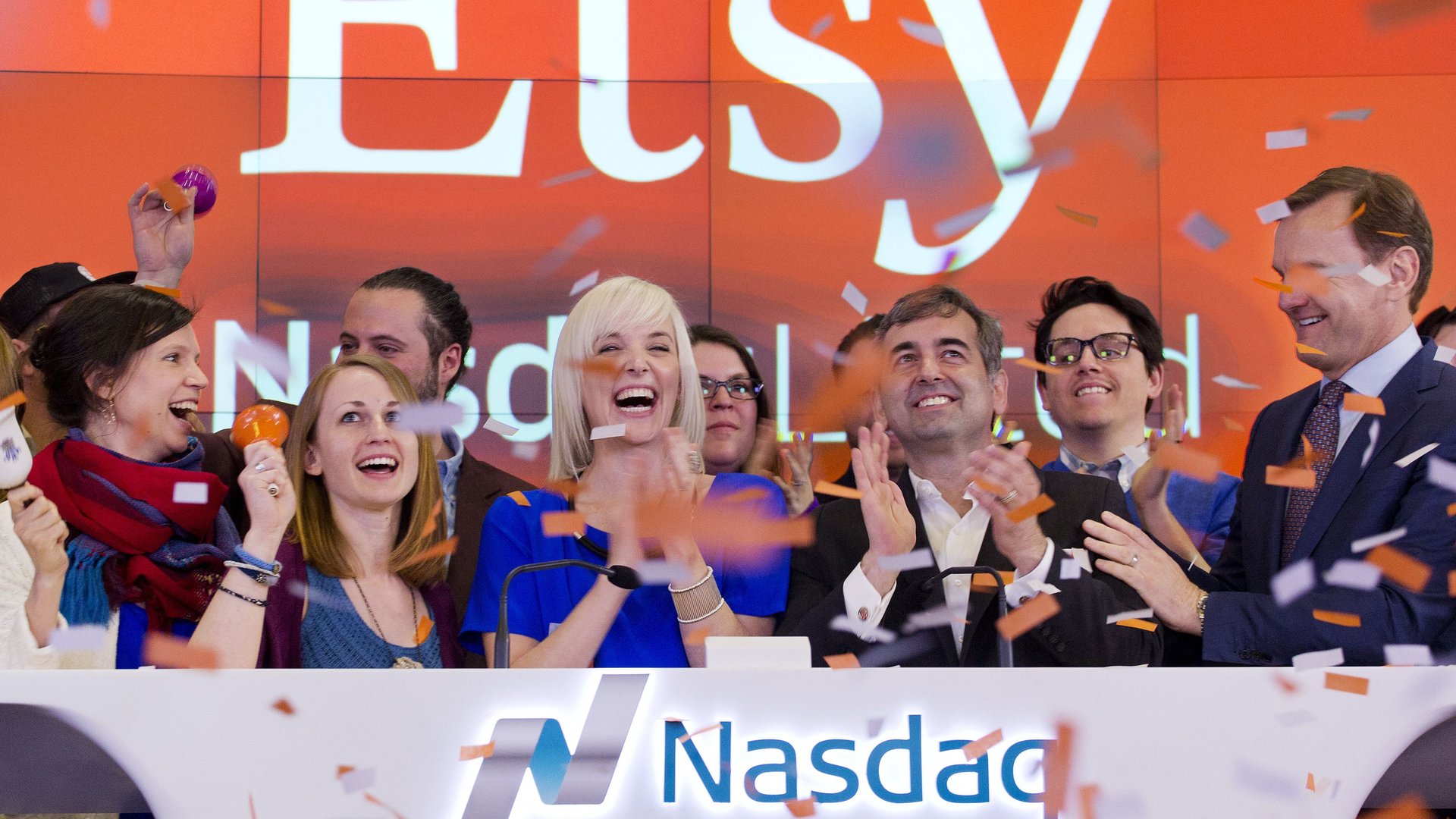New York’s unrealistic dream of rivaling Silicon Valley should end with Etsy’s troubles
In 2010, pundits believed New York City was poised to become the next Silicon Valley.


In 2010, pundits believed New York City was poised to become the next Silicon Valley.
“For years, California’s Bay Area has been home to tech powerhouses such as Apple and Google and the most successful internet startups: YouTube, Wikipedia, Facebook, Twitter,” explained one CNN article at the time. “But now, New York is turning up the heat on its West Coast competition with some successful startups of its own: think Tumblr, the blogging platform; Foursquare, the mobile social-networking game; and Gilt Groupe, an online store for discounted designer clothes.”
I had just been assigned to cover New York City startups for Mashable (which at the time was a tech blog), and the excitement was palpable. Launch parties–complete with the stereotypical kegs, ping pong tables, and astroturf carpet–were everywhere. Incubators like TechStars, Gramercy Labs Collective, and Prehype had set up shop, and a stable of what were, at the time, tech-focused coworking spaces like WeWork and General Assembly had opened their doors. The NY Tech Meetup was drawing a thousand people each month to watch demos from new companies. And Mayor Michael Bloomberg had just told entrepreneurs of New York City, “This is where it’s happening.”
All that was missing from New York City’s tech scene, it seemed in many people’s eyes, was a big, world-changing company. “In Silicon Valley, when an Apple or a Google happens, it inspires tons of people to not just be entrepreneurs or founders of start-ups,” Meetup CEO Scott Heiferman, whose company is based in New York, told New York Magazine in 2010. “It encourages people to just work in the industry because they know if you’re an engineer for a company that does really well, then you do well. New York does not have its great success stories that become the stuff of legend and lore and myth.” It wasn’t just about role models. Companies like Google and Facebook have also helped shape Silicon Valley, in part, by creating a steady stream of extremely wealthy, entrepreneurial-minded employees who eventually become angel investors to new companies.
In 2010, New York seemed on the brink of establishing its own version.
As the tech blog The Next Web put it at the time:
“Startups like Gilt Groupe and Etsy have proved their potential to attract mass markets, as have companies like Meetup, Tumblr and Foursquare; they are startups that have enabled and inspired connections within the tech community, spawning opportunities for entrepreneurs, engineers and tech enthusiasts to create and grow the city’s digital ecosystem.”
Foursquare was close to 1 million users, which seemed like a lot at the time. Tumblr and Meetup were on the brink of becoming social-media forces on par with Facebook. Gilt Groupe was “one of the biggest startup success stories to emerge from New York in recent years” and expected to file for an IPO any day. And online crafts marketplace Etsy had grown quickly to 7 million registered users, more than twice the number just one year prior.
Since then, it’s become apparent that New York is not going to get its Google anytime soon. After Foursquare’s check-in game grew tiring, it switched its focus to selling location data to companies. Gilt Groupe downsized. Meetup and Kickstarter have both chugged along fine, but neither has become the rocket ship that it once seemed to be building.
In terms of exits, Tumblr and Etsy have been the most successful of the bunch, but neither has prospered. Yahoo acquired Tumblr for $1.1 billion in 2013, making it New York’s first billion-dollar exit, but later Yahoo implied that its money had mostly been wasted on the deal.
Etsy went public in 2015, and its value quickly jumped to $3.3 billion. Hope that it would become a superstar company faded fast, and it was dubbed the worst-performing IPO of 2015. On Tuesday, Etsy replaced its CEO, Chad Dickerson, and announced plans to lay off 8% of its workforce. Its market cap is now just $1.2 billion.
New York is not, as so many blog posts exclaimed back in 2010, the next Silicon Valley.
But maybe the more pertinent point is that it doesn’t need to be. According to CB Insights, the number of venture capital deals in New York has increased over the last four years from a total of 38 deals valued at $447 million in 2012 to 122 deals valued at $2.5 billion in 2016. At least 600 tech companies base themselves in New York, and almost every data source that tracks venture funding in the US now places New York at a distant second place behind Silicon Valley. That’s pretty good!
While the near future may not hold a blockbuster exit for New York, even if it remains second-place in its funding ecosystem forever, it has other advantages. Crain’s writer John Folely recently summarized its biggest one:
The business revolution of the next several decades will move beyond the early tech plays — faster, smaller chips or connecting people and information virtually. It will be about transforming large industries that no longer meet their customers’ demands into something more efficient and personal.
That can happen only where those industries are. So although Silicon Valley dominated the first wave of technology disruption, the advantage has shifted to New York, with its vastly greater diversity of businesses.
He points to companies like WeWork and Betterment as examples of startups that have thrived in New York close to the real estate and finance industry, respectively. Nobody needs another Silicon Valley app for on-demand delivery. Instead of striving to mimic Silicon Valley, it’s a good thing that Boston, with its strong research institutions, for instance, has an advantage in biotech and that New York, the center of so many industries, has advantages other than lots of rich entrepreneurs and funding money.